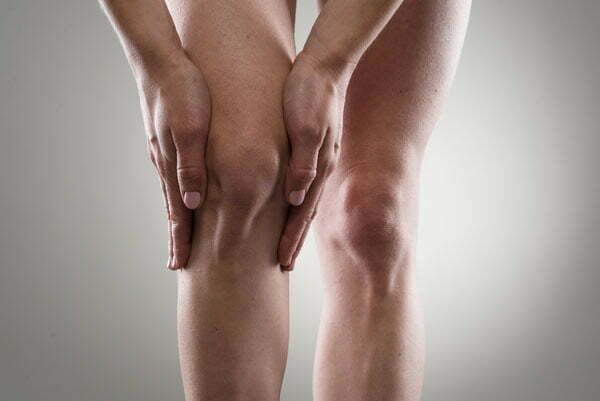
What Is Arthritis?
Arthritis is a widespread problem characterized by inflammation in one or multiple joints in the body. There are numerous types of arthritis that cause varying symptoms and require different treatment methods. Arthritis is one of the most debilitating conditions that many individuals across Canada will experience.
Types of Arthritis
Degenerative Arthritis
Osteoarthritis (OA) is one of the most common types of degenerative arthritis experienced. This condition involves the development of damaged or worn-out cartilage, which cushions the surfaces on the ends of the bones. Osteoarthritis is most common in people between 50 and 60 and can form because of an infection or injury to the joints, which initiates the breakdown of cartilage. Once the cartilage is worn down, the bone rubs against each other’s surfaces, which can result in joint swelling, stiffness, and chronic pain.
Inflammatory Arthritis
Rheumatoid arthritis (RA) is an autoimmune disorder that occurs when the immune system starts to mistakenly attack the body’s tissues and joints. This can cause erosion of the joints, as well as damage to different organs throughout the body. Psoriatic arthritis is another common form of inflammatory arthritis with the same effect.
Metabolic Arthritis
The human body breaks down purine and generates uric acid. When the body begins to produce higher uric acid levels or the body fails to flush it out of its system, it may result in a large amount of uric acid in the blood. The uric acid can then build up and form into crystalized needles in the joint. This could lead to gout and chronic pain that may lead to disability.
What Causes Arthritis?
Some of the most common causes of arthritis are as follows:
- Injuries: Patients who have injured one or more joints, such as while playing sports, are more likely to develop arthritis in those joints.
- Age: Muscle weakness or wear and tear of the joints over time can lead to many types of arthritis later in life, such as osteoarthritis, rheumatoid arthritis, and gout.
- Autoimmune disorders: A weakened immune system can put you at risk of developing an arthritic condition, such as rheumatoid or psoriatic arthritis.
- Gender: Women are most likely to develop rheumatoid arthritis, while men are more likely to develop gout.
- Obesity: Carrying a heavy amount of excess weight can put a lot of stress and pressure on the joints, especially the knees, hips, and spine. Individuals who are quite heavy have a higher risk of developing arthritis.
- Family history: Some forms of arthritis can run in your family, which increases the likelihood of developing arthritis.
Arthritis can develop slowly over time, but it may also appear suddenly and result in permanent joint damage and pain. It typically affects individuals between 30 and 50 years old, but it can also affect children, teens, and young adults.
Most patients will commonly develop arthritis in the following areas:
- Hands
- Neck
- Shoulders
- Knees
- Hips
- Feet
- Spine

Arthritis Symptoms
Joint pain, stiffness, and swelling are the most common symptoms associated with arthritis. Patients may notice their symptoms feel worse in the morning after the joints have been resting.
Other symptoms of arthritis include:
- Inflammation
- Limited range of motion
- Muscle weakness
- Clicking/popping when bending
- More than one affected joint
Living with arthritic symptoms can make the tasks of daily life challenging. Chronic arthritis can also impede your quality of life and can prevent you from engaging in both your work and social life.
Joint pain and swelling can affect the following:
- Walking: Simple activities, such as walking, can increase joint pain. You may eventually need a cane or walker to support yourself.
- Climbing stairs: Experiencing any foot, ankle, hip, or knee pain can make it difficult to climb stairs without excruciating pain.
- Daily tasks: Sweeping, mopping, or any other household chores can become difficult for patients living with arthritis.
- Eating: Chronic joint pain or swelling can become so debilitating that it can affect how you eat. The simple process of using a fork and knife to cut food can be extremely painful.
- Routine Hygiene and grooming: Much like with eating, the process of combing your hair or brushing your teeth can cause a considerable amount of pain, which can impede how you take care of yourself.
Treatment Options
Physiotherapy
For patients struggling with arthritis, symptoms can progress or worsen even with the help of medication. Winnipeg physiotherapy services are a safe and natural treatment option that can help reduce the risk of disability.
A Physical Therapist will assess your movements to understand the condition of your joints and muscles which can help manage the symptoms. Patients will receive a customized treatment plan to relieve pain. Treatment will include strengthening exercises that target the muscles surrounding your joints. The exercise program will help the joints heal and prevent pain without the reliance on pain relievers.
Some distinct types of physical therapy treatment recommended by your Physical Therapist may include the following:
- Massage therapy: This type of manual therapy from a Physical Therapist can reduce the production of cortisol, which is a stress hormone, and stimulate the brain to produce more serotonin. This will help the body relax and promote a pain-relieving experience for your joints and muscles.
- Acupuncture: Increases stimulation in the brain, as well as endorphins which can relieve pain in the affected joints.
- Hot and cold packs: Hot packs or pads can stimulate the blood flow in the affected joint space and soothe the pain. Ice packs can be used to reduce joint swelling or inflammation.
- Transcutaneous Electrical Nerve Stimulation (TENS): This method is utilized to block your nerves from sending pain messages to the brain using a small electronic device. This device sends pulses to the nerve endings which creates a tingling sensation to relieve joint pain.
Goals of Physical Therapy
The goals of physical therapy will include:
- Increasing muscle strength to support the joints
- Improving joint motion and restoring the function of the affected joints
- Maintaining fitness levels
- Upholding the ability to perform daily activities
With the help of physical therapy treatments, patients at our clinic dealing with arthritis pain will find relief from our services. If you’ve had enough of how arthritis affects your life, book an appointment with a Physical Therapist today. We can provide the right treatment plan and options to assist you in your time of need.



